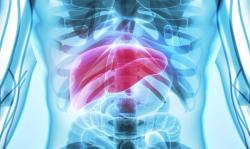
OR WAIT null SECS
Mesothelioma Patients Benefit from Receiving Universal Germline Testing
This new data indicated a necessity for clinical strategies made to handle unintentional pathogenic or likely pathogenic germline variants seen in tumor-only next-generation sequencing.
Individuals with mesothelioma may see benefits after receiving universal germline testing, according to new findings, with a clinical approach designed to respond to incidental P/LP germline variants for tumor-only NGS being necessary.1
These findings came from a study which assessed the number of mesothelioma tumor profiling assays that incidentally identified germline variants linked to cancer syndromes considered to be hereditary.
Tumor-exclusive next-generation sequencing (NGS) has become progressively utilized within academic settings, according to the study’s investigators, allowing for the identification of candidates seen as suitable for trials assessing focused therapeutic agents. The genes which are known to be most commonly subjected to somatic alterations in mesothelioma comprise CDKN2A, BAP1, DDX3X, TP53, and NF2.2,3
This latest research was authored by Michael W. Drazer, MD, PhD, from the Department of Medicine’s Section of Hematology/Oncology at the University of Chicago.
“Here, we analyzed a large series of patients with mesothelioma who underwent both tumor and germline sequencing,” Drazer and colleagues wrote. “We determined the prevalence of incidental germline findings that were also detected via tumor-only sequencing.”
Background and Findings
The study’s participants had diagnoses of mesothelioma from the University of Chicago Medicine (UCM), and these had been made between April of 2016 and October of 2021. These patients were invited to take part in the team’s research.
The investigators collected biobanked samples—including saliva, peripheral blood, and tumor—for germline sequencing as well as future studies. In addition to this, standardized surveys were organized and carried out by interviewers trained to assess personal as well as familial history of cancer, using self-reported primary or secondary asbestos exposure.
The investigators, to guarantee diversity in data, assessed demographic data including non-European backgrounds, seeking to address the noted historical overrepresentation of participants with European ancestry in studies on mesothelioma.
The study’s genetic analysis used DNA extraction taken from saliva or peripheral blood, and this was then followed up by sequencing through an 84-gene NGS panel crafted by the Laboratory of University of Chicago Genetic Services. This designed panel was made to encompass coding as well as adjacent intronic regions of every one of the genes, with variants undergoing careful examination by independent reviewers and the research following the established genetic interpretation guidelines.
Pathogenic or likely pathogenic (P/LP) variants, covering several different types of mutations, were found, validated through the use of Sanger sequencing, and then they were correlated with familial and clinical context. The team particularly focused on moderate-to-high cancer susceptibility variants.
The option to be given pertinent research findings was given to the study participants, which led to clinical consultations made to discuss these findings in greater detail.
The team’s tumor DNA extraction utilized fresh frozen and paraffin-embedded blocks of tissue for analysis of somatic variants. The UCM OncoPlus NGS panel—which encompassed 1212 total genes—was used by the investigators to find somatic variants, with many different coverage depths.
BAP1 and PD-L1 staining was done by the research team in a CLIA-certified lab with specific monoclonal antibodies, and the Tumor Percentage Score (TPS) was applied by the team to quantify the number of PD-L1-positive cells.
The investigators ended up with a cohort of 161 total participants who had diagnoses of mesothelioma, and they noted that 65% were male. Additionally, the research team reported the average age of the participants was found to be 64.7 years, with a standard deviation of 11.2 years.
The team added that 97% of the study’s participants identified as being non-Hispanic White. They found that a substantial portion of the included individuals (78%) showed a minimum of 1 possibly-incidental pathogenic or likely pathogenic (P/LP) germline variant.
The investigators added that the positive predictive value linked with identifying such a possibly- incidental P/LP germline variant through the use of tumor-only NGS was found to be 20%. In a larger context, the team noted that 16% of the study participants were found to carry a germline variant with a classification of pathogenic or likely pathogenic.
Furthermore, the investigators reported that the specified genes in which such germline P/LP variants were shown to have been detected were: ATM, BAP1, ATR, CHEK2, FANCM, DDX41, MRE11A, MUTYH, MSH6, NF1, HAX1, SAMD9L, and TMEM127.
“Given the implications of a hereditary cancer syndrome diagnosis for preventive care and familial counseling, clinical approaches for addressing incidental P/LP germline variants in tumor-only NGS are needed,” they wrote. “Universal germline testing is likely needed for patients with mesothelioma.”
References
- Mitchell OD, Gilliam K, del Gaudio D, et al. Germline Variants Incidentally Detected via Tumor-Only Genomic Profiling of Patients With Mesothelioma. JAMA Netw Open. 2023;6(8):e2327351. doi:10.1001/jamanetworkopen.2023.27351.
- Bueno R, Stawiski EW, Goldstein LD, et al. Comprehensive genomic analysis of malignant pleural mesothelioma identifies recurrent mutations, gene fusions and splicing alterations. Nat Genet. 2016;48(4):407-416. doi:10.1038/ng.3520.
- Hung YP, Dong F, Torre M, Crum CP, Bueno R, Chirieac LR. Molecular characterization of diffuse malignant peritoneal mesothelioma. Mod Pathol. 2020;33(11):2269-2279. doi:10.1038/s41379-020-0588-y.


